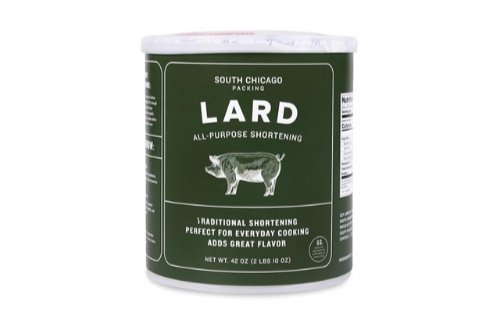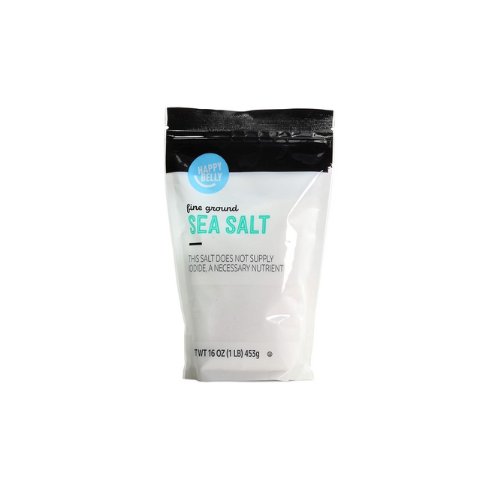Can You Eat Deli Meat on Carnivore Diet
Understanding Processed Meats' Place
The carnivore diet, a regimen centered around the consumption of animal products, has been gaining traction among those seeking health improvements through a meat-focused lifestyle. This dietary approach typically includes a variety of meats, seafood, eggs, and certain dairy products. It excludes plant-based foods altogether, making it a zero-carb diet by default. Individuals who adhere to this way of eating often prioritize high-quality, nutrient-dense animal foods such as beef, pork, organ meats, and seafood.
When considering deli meats in the context of the carnivore diet, there are important factors to take into account. Although deli meats come from animal sources, they frequently contain added preservatives, nitrates, and artificial flavors which may not be in line with the diet's principles of consuming unprocessed and additive-free foods. Thus, the suitability of deli meats for the carnivore diet becomes a point of contention, hinging upon the purity and source of the meats in question.
Carnivore Diet Basics
The carnivore diet is a nutritional plan that emphasizes consuming primarily animal products. It is often described as a zero-carb diet, as it excludes carbohydrate-containing foods in favor of those comprised wholly of animal-derived ingredients. This dietary approach focuses on the intake of meat, fats, and other animal products such as eggs and select dairy.
Meat: Forms the foundation of the diet, including beef, pork, chicken, and fish.
Fats: Essential for energy, sourced from fatty cuts of meat and animal fat.
Animal Products: Eggs and dairy products like cheese and butter are permissible.
Nutritional Aspects:
Protein: Serves as a primary source of dietary protein, crucial for muscle maintenance and repair.
Vitamins and Minerals: Rich in nutrients like Vitamin B12, Iron, and Zinc, typically found in organ meats and seafood.
Essential Nutrients: Diet aims to provide necessary fats, amino acids, and other essential nutrients derived from animal sources.
Individuals following this diet eliminate traditional carbohydrate sources including fruits, vegetables, grains, and nuts, proposing that animal tissues can provide all the necessary nutrients required for human health. They also often avoid processed meats like those found in deli meats, seeking higher-quality sources of animal products that are less likely to contain additives or preservatives.
One should note that while the carnivore diet is high in certain vitamins and minerals, it lacks others typically found in a more varied diet, and critics often point out potential nutritional gaps. Those considering this diet are advised to carefully research and consider the implications on overall health.
Allowed Foods on Carnivore Diet
The carnivore diet restricts one to animal-based foods, eliminating all plant-based options. This diet involves a variety of meats and animal products, coupled with specific beverages and limited seasonings to maintain adherence to its core principles.
Meats
Beef: Includes all cuts, such as steak and ribeye.
Pork: Acceptable in its unprocessed form, including chops and loins.
Chicken: Both white and dark meat are permitted.
Lamb and Venison: These red meats (What wine goes well with red meat?) are included in the food list.
Organ Meats: Liver, heart, and kidney are nutrient-dense choices.
Seafood: A range of seafood like salmon, tuna, shrimp, oysters, and scallops.
Other Animal Products
Eggs: Whole eggs are a staple in the diet for their high nutrient content.
Dairy: Limited to high-fat options like butter, hard cheeses, and yogurt.
Animal Fats: Lard and bone marrow are encouraged for cooking and flavoring.
Bone Broth: A nutritious liquid made from simmering bones for an extended period.
When it comes to lard, online shopping is the way to go!
Beverages
Water: The primary beverage of choice.
Bone Broth: Can be consumed for hydration and nutrients.
Tea and Coffee: These are typically allowed, but without any added milk or sugar.
Seasonings
Salt: A simple mineral used to enhance flavor.
Pepper: Permitted in moderation to season meats.
Each item in this list contributes to a meal plan that's focused purely on animal products, prioritizing foods in their most natural and unprocessed state. The carnivore diet highlights the importance of meat and animal products, with the flexibility of including a variety of meat types and cuts, as well as certain animal-derived products and fats. Beverages are minimal but chosen to support hydration and nutrient intake, and seasonings are used sparingly to ensure the focus remains on the animal foods themselves.
Trust me, the easiest way to buy salt and pepper is through online retailers!
Foods to Avoid
In the carnivore diet, individuals should completely eliminate all plant-based substances and heavily processed foods. These two categories have no place in a diet focused solely on animal products.
Plant-Based Foods
Grains: This category includes wheat, rice, oats, barley, and all products made from them such as bread, pasta, and cereal.
Vegetables and Fruits: All types of vegetables and fruits are excluded from the carnivore diet, irrespective of their nutrient content or health benefits.
Legumes: Beans, lentils, peanuts, and all other members of the legume family must be avoided.
All Plant Foods and Produce: Any other edible item that is derived from plants, such as nuts, seeds, herbs, and spices, should also be omitted.
Processed and Sugary Foods
Processed Meats: While deli meats are derived from animals, they often contain non-animal additives such as preservatives and should be avoided. Fresh, unprocessed meats are preferable.
Sugars and Artificial Sweeteners: Refined sugar and artificial sweeteners do not align with the carnivore diet principles.
High-Carbohydrate Foods: Foods high in carbohydrates, such as baked goods and sugary snacks, are to be strictly avoided.
Carnivore Diet Meal Planning
When planning meals on a carnivore diet, individuals focus on consuming animal-based foods exclusively. Here, one can explore a sample meal plan designed to align with the principles of the carnivore diet, emphasizing unprocessed meats and animal products for breakfast, lunch, and dinner.
Sample Meal Plan
Breakfast: To start the day, a person might enjoy a Pork Sausage and Cheese Omelette. This meal consists of eggs whisked and cooked into a fluffy omelette, incorporating sliced pork sausages, and topped with a generous helping of cheddar or gouda cheese for added fat and flavor.
Lunch: For lunch, a simple yet satisfying option could be a Roast Chicken Breast seasoned with just salt and pepper. The skin is left on to ensure intake of fats that are crucial for sustained energy on this diet.
Dinner: Dinner could consist of a heartier option such as Lamb Chops or Pork Belly. These cuts provide a rich source of protein and fat, beneficial for meeting the dietary guidelines of the carnivore diet. They can be simply grilled or roasted to desired doneness.
This sample meal plan provides a framework for someone following the carnivore diet. Portion sizes and specific meat choices can be adjusted to meet individual nutritional needs and preferences.
Health Benefits and Risks
When considering the inclusion of deli meats in a carnivore diet, individuals often weigh the potential health benefits against the possible risks. This assessment is crucial to understanding how such a diet can impact one's well-being.
Potential Benefits
Weight Loss: A significant draw of the carnivore diet is its implication in weight loss. The diet, comprised mainly of protein and fats, may contribute to satiety, potentially reducing overall calorie intake.
Focus and Energy: Proponents suggest that eliminating carbohydrates can lead to improved mental clarity and sustained energy levels due to a steady source of fuel from fats and proteins.
Reduced Inflammation: The elimination of plant-based foods can result in decreased inflammation markers for some individuals, attributed to the absence of certain plant-based inflammatory triggers.
Testosterone Levels: The diet's high nutrient density, particularly from red meat, may positively affect testosterone production due to the presence of zinc and saturated fats which are pivotal for hormone synthesis.
Possible Risks
Heart Disease: The high intake of saturated fats found in some deli meats might increase the risk of heart disease by influencing cholesterol levels.
High Blood Pressure and Kidneys: A diet rich in processed meats like deli cuts may contribute to high blood pressure, which can be a concern for kidney function over time.
Diabetes: While reducing the intake of carbohydrates, the exclusive consumption of meats might lead to an imbalanced diet, potentially affecting blood sugar control and diabetes management.
Constipation: The absence of dietary fiber in the carnivore diet may lead to constipation and other digestive issues, as fiber is essential for gut health.
Concerns Over Nutrient Imbalances: Limiting the diet to mainly animal products might result in nutrient deficiencies or imbalances, particularly if the diet lacks variety and if deli meats with added sugars and fillers are consumed.
Nutritional Considerations
When considering a carnivore diet, there are important nutritional elements to factor in, particularly the balance and adequacy of macronutrients and micronutrients and the potential need for supplements to prevent deficiencies.
Macronutrients and Micronutrients
Protein: The carnivore diet is rich in protein, an essential nutrient critical for building and repairing tissues. Meat, including deli meats, generally provides all the essential amino acids needed, making it a complete protein source.
Fats: Deli meats can vary in fat content, especially saturated fat. Fats are necessary for energy and absorption of vitamins. When choosing deli meats, one may opt for options with a favorable fatty acid profile, such as those higher in omega-3s.
Vitamins and Minerals: The diet provides an array of vitamins and minerals essential for health. Red meats are particularly high in B vitamins, zinc, and iron, while fish provides vitamin D and iodine. It is, however, notably low in vitamin C and fiber since these are primarily found in plant-based foods.
Table 1: Nutrient Profile of Common Deli Meats (per 100g)
Protein (g)
Ham: 18.3
Turkey: 22.0
Roast Beef: 28.9
Fat (g)
Ham: 7.7
Turkey: 1.0
Roast Beef: 3.5
Saturated Fat (g)
Ham: 2.6
Turkey: 0.3
Roast Beef: 1.5
Vitamin C (mg)
Ham: 0
Turkey: 0
Roast Beef: 0
Iron (mg)
Ham: 0.6
Turkey: 1.3
Roast Beef: 2.5
Supplementation and Deficiencies
Without careful planning, the carnivore diet may lead to certain nutritional deficiencies. Lack of vitamin C could potentially cause scurvy, although the body’s need for this vitamin may be lower in the absence of dietary carbohydrates. Due to the exclusion of plant-based foods, a risk of fiber deficiency exists as well, which could affect digestive health.
Table 2: Potential Nutritional Supplements for Carnivore Diet
Vitamin C
Recommendation: Consider supplementation if no fresh meat is consumed
Fiber
Recommendation: May need to supplement if experiencing digestive issues
It is critical to ensure the diet is not solely high in fat and protein but includes a variety of animal products to cover essential micronutrients. One should consider intake levels, potential deficiencies, and possibly implement strategic supplementation.
Get the best value for your money by purchasing vitamin C and fiber supplement online!
Carnivore Diet Versus Other Diets
The carnivore diet focuses exclusively on animal products and eliminates plant-based foods, contrasting with diets that either incorporate a balance of plant and animal foods or focus solely on plant-based nutrition. Different diets cater to varied objectives, ranging from weight loss to improving overall well-being.
Comparison With Keto Diet
The keto diet is a low-carbohydrate, high-fat diet that shares similarities with the carnivore diet in that both promote a low intake of carbs and can lead to a state of ketosis. However, here are critical differences:
Carbohydrates: Keto allows for a limited intake of carbohydrates, typically 20-50 grams per day, often from plant-based sources like vegetables and nuts, whereas the carnivore diet aims for zero carbs, exclusively from animal products.
Fat Intake: Keto emphasizes high fat, including plant-based fats like avocados and coconut oil. In contrast, the carnivore diet does not explicitly focus on fat consumption levels as long as the foods are animal-based.
Comparison With Plant-Based Diets
Plant-based diets center on foods derived from plants, including vegetables, grains, nuts, seeds, legumes, and fruits. In contrast, the carnivore diet excludes these completely. Considerations between the diets include:
Nutritional Variety: Plant-based diets are known for their variety of vitamins, minerals, and fiber, while the carnivore diet relies on animal products to meet nutritional needs.
Long-term Sustainability: There is an ongoing debate on the long-term sustainability of fad diets like strict carnivore when compared to the generally well-regarded balance of plant-based diets, which often aim to support long-term well-being.
The key differences lie in the approach to carbohydrates, fats, and food variety, with each diet having unique implications for an individual's health and nutritional goals.
Practical Tips and Guidance
The transition to a carnivore diet requires a strategic approach focused on nutrition, hydration, and social adaptability. It's important to consider the types of meats consumed, the balance of electrolytes, and the social implications of dietary choices.
Starting the Carnivore Diet
Initiating a carnivore diet typically leads to an increase in focus and energy, but it's crucial to select the right kinds of meat. One should prioritize natural and unprocessed meats, avoiding deli meats that often contain preservatives and additives. When first starting out, it's recommended to consume:
Beef: ribeye, sirloin, organ meats
Poultry: chicken, turkey (preferably roasted or grilled)
Seafood: fatty fish like salmon, mackerel
Pork: cuts like loin or chops
Opt for meats with higher fat content to maintain satiety and energy levels.
Maintaining Hydration and Electrolytes
A carnivore diet changes how the body processes water and salt, so individuals need to ensure they are adequately hydrated. Drinking plenty of water is essential, and maintaining electrolyte balance can involve adding extra salt to meals. Consider the following:
Water intake: minimum of 2 liters per day, more if active
Salt: sprinkle additional amounts on meals to taste
Be cautious with beverages like alcohol, which can dehydrate and aren't typically part of a strict carnivore regimen. He or she might choose to avoid alcohol altogether.
Handling Social Situations
Navigating social events on a carnivore diet can be challenging, but one can manage by planning ahead. When dining out, they should:
Choose restaurants with meat-centric options like steak houses or barbecue joints.
Inquire about the use of cooking oils, aiming for animal fats over vegetable oils.
When in doubt, opt for simple grilled or roasted meats and avoid sauces or marinades.
Social drinking may also come into play, and individuals should be mindful that options like clear spirits are generally lower in additives, though moderation is advised.
Common Concerns and Questions
When considering the carnivore diet, individuals often inquire about specific health aspects. These include the management of blood sugar in the context of diabetes, the diet's impact on autoimmune conditions, its role in weight management, and potential effects on mental health and well-being.
Managing Blood Sugar and Diabetes
On the carnivore diet, one primarily consumes animal products, which are typically low in carbohydrates. This can lead to stable blood sugar levels, an aspect beneficial for individuals managing diabetes. However, a diet devoid of plant-based foods may lack certain nutrients, and its long-term effects on blood sugar management require further study.
Impact on Autoimmune Conditions
Some proponents suggest that the carnivore diet may reduce inflammation associated with autoimmune conditions, due to the elimination of potentially reactive plant foods. There is anecdotal evidence of improvement in symptoms, but robust clinical data is lacking. Individuals should approach such dietary changes cautiously and in consultation with a healthcare provider.
Influence on Weight Management
The carnivore diet is high in protein and fat, which can be satiating and potentially lead to a reduction in overall calorie intake. Weight loss may occur as a result, but the absence of a diverse range of nutrients could have other health implications. One's caloric needs and nutritional balance should be carefully considered.
Effects on Mental Health and Well-Being
The effects of the carnivore diet on mental health and well-being are not well-documented. Adherents often report increased energy and focus, which may contribute positively to one’s well-being. However, it's crucial to recognize that diet is just one factor in mental health, and individual experiences may vary widely.
Profiles and Case Studies
The following case studies provide specific insights into how deli meats fit within the carnivore diet framework from both a thought leader in the community and the collective experiences of individuals who have committed to this way of eating long-term.
Dr. Shawn Baker's Approach
Dr. Shawn Baker, an orthopedic surgeon and a proponent of the carnivore diet, underscores the importance of simplicity and adherence to whole foods. While not explicitly banning deli meats, Dr. Baker advocates for fresh, unprocessed cuts of meat to maximize the diet's potential benefits. He emphasizes the nutritional advantages of consuming meat in its least processed form, suggesting that processed meats like those found in the deli section might not align with the diet's purist intentions.
Experiences From Long-Term Carnivores
Individuals who have followed the carnivore diet for an extended period generally report a preference for less processed meat options. Their experiences suggest that the inclusion of deli meats is a matter of personal choice and context, with some opting for them due to convenience or variety, while others avoid them to stay closer to the diet's principles. The shared experiences point toward a consensus that fresh, unprocessed meats are the gold standard for maintaining the integrity of the carnivore diet.
Conclusion
In summary, individuals adhering to the carnivore diet have the option of incorporating deli meat into their regimen. They should focus on high-quality, preservative-free options to align with the diet’s emphasis on consuming animal-based, nutrient-dense foods.
Key Considerations:
Quality of Meat: Opt for deli meats that are low in additives and free from fillers.
Nutrient Density: Prioritize whole cuts over processed varieties for a more robust nutrient profile.
By doing so, one can potentially enjoy the convenience of deli meats while maintaining the integrity of the carnivore diet. However, it is crucial for individuals to be discerning about their selections, emphasizing the importance of minimally processed meats to support their health goals.
Lastly, it's advisable to consult with a healthcare professional before making significant dietary changes, especially a diet as restrictive as the carnivore diet.
















